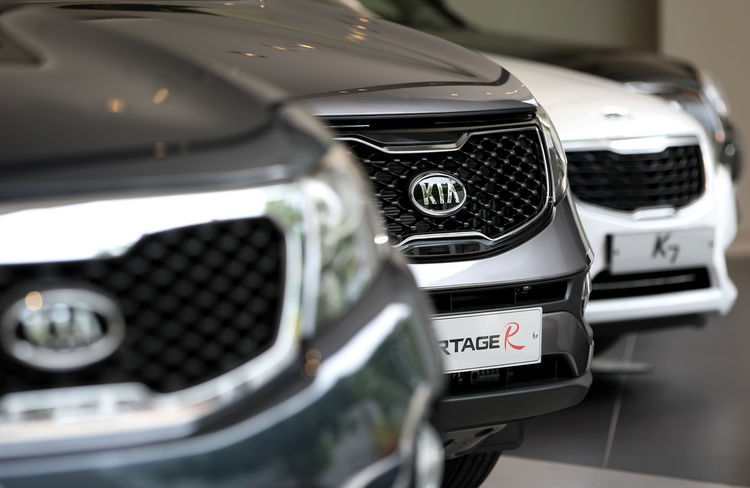- Kia Joins Elizade, Cosharis in Used Car Business
Until recently, the used vehicle business in Nigeria used to be a debasing one; the market was mainly for the organised dealers who were considered not financially strong enough to venture into new vehicle business.
But things are fast changing as notable car dealers, including Cosharis Motors and Elizade Nigeria Limited, have become major investors in the business of Tokunbo cars as used cars are popularly called.
The latest entrant is Kia Nigeria Limited, which has just announced the launch of what it calls ‘best ever certified used car programme’.
A statement by the Marketing Manager, Dana Motors Limited, Mr. Jimoh Olawale, obtained via email, said the programme would offer many people “the platform to get the best valuation for their cars in real time at our used car showroom in Lagos.”
Dana Motors, which is the representative of Kia Motors in Nigeria, also stated in the announcement that the used car programme would provide the opportunity for people to sell their old Kia cars or swap them for new models.
It said, “The programme enables you to sell your car or swap it for a new model either by outright purchase or finance scheme. We are partnering one of the leading banks to provide a highly competitive EMI and repayment tenure to best fit your budget.”
The interest of new car dealers in the Tokunbo market, it was leant, was due to the high volume of the business in relation to the new vehicle market.
For instance, while dealers of new vehicles are struggling to sell about 20,000 units in a year, the Tokunbo market controls over 200,000 units annually, according to the Director-General, National Automotive Design and Development Council, Aminu Jalal.
He also lamented that the harsh operating environment affecting every sector of the Nigerian economy was taking a heavy toll on the automobile sector, with the annual sale volume of 450,000 cars dropping to about 250,000 owing to the drop in the people’s purchasing power.
But the used car business has always been a booming industry in other parts of the world, especially in developed countries such as the United States, the United Kingdom, France and Germany.
A report contributed recently by Gurufocus to an American business magazine, Forbes, under the title, ‘The used car market: What is driving the growth, noted that in the last few years, the used car market had demonstrated a significant growth in value contributing largely to the overall market value.
For instance, the writer noted that in the UK, the used car market contributed 51 per cent of the total sales in 2014 with GBP 45.1 billion.
Quoting Wikipedia, the free online resource, another report on the issue by the Nigeria Auto Journal stated, “With annual sales of nearly $370bn, the used vehicle industry represents almost half of the US auto retail market and is the largest retail segment of the economy.”
Prior to the coming of Elizade and Cosharis into the Tokunbo car market, the report listed the first set of major dealers in the business as LanreShittu Motors and Mandilas Motors.
“While Lanre Shittu Motors has over the years been known for its franchise holding of Mack trucks and Yutong, Mandilas Motors on the other hand is currently an accredited dealer of Toyota Nigeria Limited, representative of Toyota brand in Nigeria.”
It quoted Elizade as saying its Certified Used Toyota Vehicle Division “is set up to meet quite a reasonable number of customers’ expectation with regard to a wide variety of American used Toyota cars with the intention to assist and satisfy the Nigerian market,” adding that the division was being run separate from the main Elizade Motors business of new Toyota and JAC brands.
An automobile expert and analyst, Dr. Oscar Odiboh, also shared the view that the decision by new car dealers to expand their business with the used car sale was “a reaction to the recession… most people can no longer afford brand new cars. So, Tokunbo (used cars) has become a booming business, as all new cars dealers are facing a serious decline in their sales figures.”


 Billionaire Watch3 weeks ago
Billionaire Watch3 weeks ago
 Startups4 weeks ago
Startups4 weeks ago
 News4 weeks ago
News4 weeks ago
 News4 weeks ago
News4 weeks ago
 Bitcoin4 weeks ago
Bitcoin4 weeks ago
 Naira4 weeks ago
Naira4 weeks ago
 Forex3 weeks ago
Forex3 weeks ago
 Treasury Bills4 weeks ago
Treasury Bills4 weeks ago
























